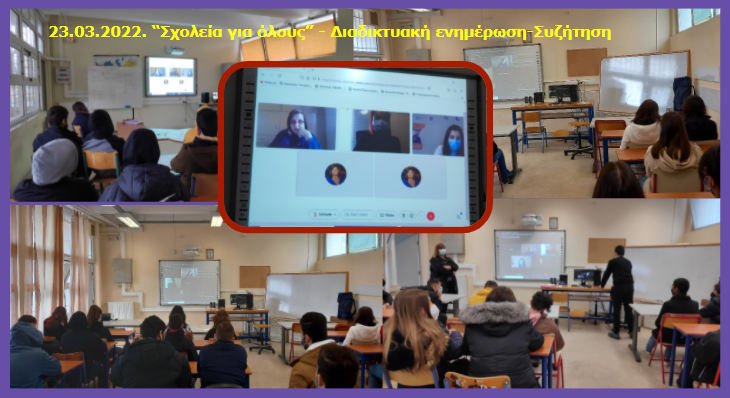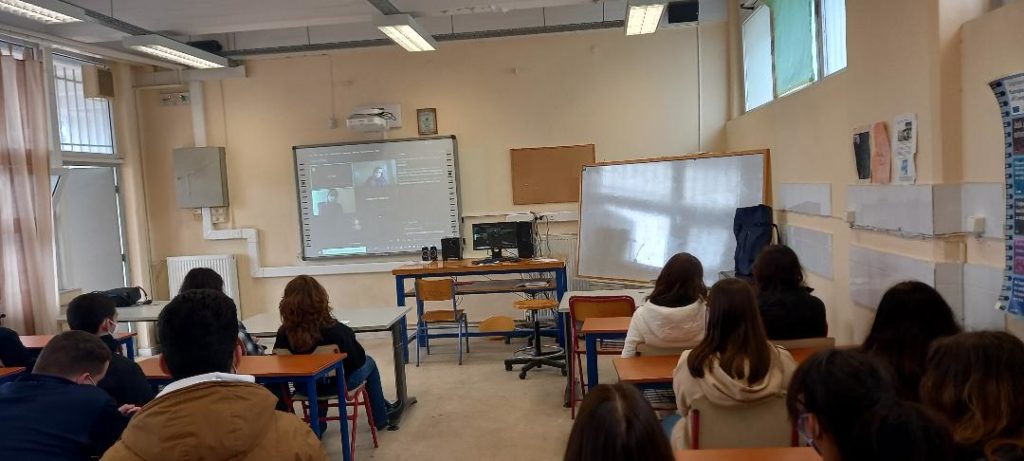Within the framework of the planned activities of the Action Plan of the 27th Luceym Athens, the awareness-raising of the native students of the 1st grade of the school for their refugee classmates was implemented. The meeting took place online and was addressed to all students of first Grade.
The four classes, connected in pairs at different times, had the opportunity to learn about their classmates. The speakers in this event were the Coordinator of the “Kipseli II, IOM” shelter, Mrs. Katerina Loudovioti and the Educator of the “Inoi” shelter, Mrs. Anna Sivilloglou. Responsible for the action were the two deputy headmistresses of the school Mrs. Vaso Tsouni and Eva Anagnostaki. The speakers described how the shelters are and how they work, how the refugee students live there, what it means to be an unaccompanied minor. The students attended with great interest and started to ask questions, resulting in a wider discussion. Important issues were raised, such as whatmeans asylum seekers, why refugee pupils, while enrolled, do not attend school, where they are now and whether they wish to return to school, who has parental care of these children, whether they have medical care, who accompanies them in case of illness, whether they are examined, whether they are assessed in the same way, whether they have the same grades with the native pupils, which countries these children are from, how there are children asylum seekers from countries that are not in a state of war, whether these children have “vitality” after all they have been through.
From the children’s questions, it was obvious that they were unaware of basic issues related to the everyday life of their refugee classmates, which highlights the need to provide relevant information to both students and school teachers during their initial training. In this discussion, the children could not help but mention the issue of Ukraine and raise the question of whether anything has been planned for Ukrainian refugee students and their attendance in schools. The representatives of the shelters answered all the children’s questions. In particular to the question about the absences of the refugee children, the pupils expressed their surprise about the reasons why their classmates were absent and the issues they had to deal with on the days they were absent from school.
As the students said : “All children are welcome and appreciated”. As one of the school’s teachers commented, this meeting was the beginning of the “intercultural” dialogue.

